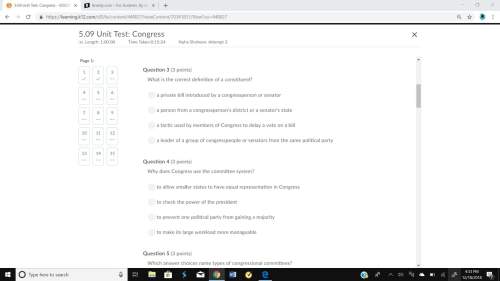
At the start of the 1700s, most people's day-to-day lives moved slowly. Few people ever left their hometowns. Leisure and sports barely existed, and instead of shopping for things, most people made them. Usually, all members of a family worked all day, so the family was able to survive.
The Industrial Revolution, an 80-year period from about 1760 to 1840, set off an explosion of change, and history hasn't stopped flying since. The technology of the Industrial Revolution turned daily life upside down. It changed how people ate, where they lived and how they worked, traveled, communicated and simply spent their days.
Those who lived through the Industrial Revolution most likely...
A) Never learned to use any technology.
B) Did not see any important historical changes.
C) Never did any shopping and always made their own goods.
D) Witnessed the development of new technology

Answers: 2


Another question on History

History, 20.06.2019 18:02
During the reign of terror, a) the federalists in the united states became convinced that closer relations with france were necessary. b) leaders of the french revolution began to arrest people and charge them as counter-revolutionaries--people who obstructed the revolution. c) people suspected of crimes against the french revolution were given fair trials. d) the king and queen of france were restored to the throne.
Answers: 3

History, 22.06.2019 05:00
The major impact third parties have on presidential elections has been to.. a. encourage larger vote turnout b. recruiter leader from the democratic and republican party to run for president c. generate increased party identification among the electorate d. developing issues that are later adopted by the major political parties e. drawn off of votes from the major parties to throw election into the house representatives
Answers: 2

History, 22.06.2019 05:30
What does the country say concerning the status of free blacks living in the united states? a) they have the same rights as any other "free" people, and are full citizens. b) they have the same rights as any other "free" people, but are not properly citizens. c) they are citizens, but don't have the full rights granted to other citizens. d) they are not citizens, and have no right to petition the court.
Answers: 1

History, 22.06.2019 10:00
Fascism is a political ideology that became popular in certain countries following world war i and was a response to fear of a. colonialism. b. communism. c. militarism. d. nationalism.
Answers: 2
You know the right answer?
At the start of the 1700s, most people's day-to-day lives moved slowly. Few people ever left their h...
Questions

Mathematics, 02.03.2021 18:40

Mathematics, 02.03.2021 18:40

Mathematics, 02.03.2021 18:40

SAT, 02.03.2021 18:40



Mathematics, 02.03.2021 18:40



Mathematics, 02.03.2021 18:40

Mathematics, 02.03.2021 18:40



Mathematics, 02.03.2021 18:40

Biology, 02.03.2021 18:40





Mathematics, 02.03.2021 18:40




